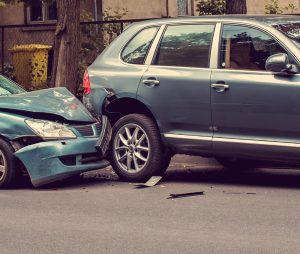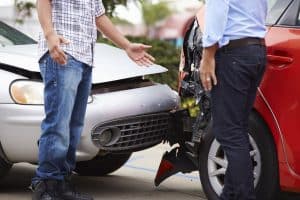Home > Car Insurance > Car Insurance for P-Platers
Car Insurance for P-Platers
Compare instant car insurance quotes for P-platers, whether you’re looking for comprehensive or third party cover.
Author
Savvy Editorial TeamFact checked

Getting the best car insurance for your needs as a P-plater in Australia is all about knowing where to look. Even if new drivers are perceived as a greater risk due to less experience on the road, it’s still crucial to compare a variety of offers before signing up to an insurance policy.
By comparing online, you can quickly and easily weigh up policies, coverage options and prices to help you make an informed decision about which is the best possible policy for your needs.
How much will my car insurance policy cost as a P-plater?
The cost of car insurance as a P-plater in Australia can vary depending on several factors. However, in general, you’ll face higher premiums due to your inexperience on the road compared to those with a full licence who have been driving for a long time.
Aside from your age and experience, some of the factors which can impact the cost of your policy include:
- Type of vehicle: the make and model of your car can influence your premium, as some cars are more expensive to repair or replace or are more likely to be stolen.
- Your driving record: a history of accidents, claims or traffic offences can increase your premium, as you’ll be seen as posing a greater risk of getting in an accident and claiming again.
- Where you live: your postcode can affect your premium, as some areas have higher rates of accidents, theft or vandalism. Additionally, different states present different risk factors, such as Queensland compared to South Australia.
- How you use your car: the more you drive, the higher the risk, which can increase your premium. If you catch the bus into work or university every day, your premiums may not be as high.
- Excess: increasing your excess can lower your premium, but it means you'll pay more out of pocket if you make a claim.
- Insurance type: as mentioned, comprehensive cover is typically more expensive than third party insurance, as it provides more protection for your car.
- Special car insurance offers: some insurers may offer discounts to drivers who sign up during a certain window or those who go a long time without making a claim, so each of these may impact your policy’s price.
Can I be covered under my parents’ car insurance as a P-plater?
It’s possible for you to be covered under your parents’ car insurance policy as a P-plater, provided you’re listed as a driver on the policy. However, it's important to note that this only applies if you’re primarily driving the family car, rather than your own. Should you own a vehicle yourself, you’ll need to purchase insurance to cover it separate from your parents’ policy.
Being added to their policy may also result in an increase in their premiums due to the added risk of having a young and inexperienced driver on the policy, which is generally the case for drivers under 25. It's also worth checking with the insurance provider whether they have any specific rules or requirements for insuring P-platers on a policy, such as an age limit on children of the policyholder.
Types of car insurance you can choose from
The most basic type of optional cover available, TPPD insurance can offer protection for damage caused by your vehicle to other people's property. However, no damage to your vehicle will be covered.
A step up from TPPD, TPFT insurance can also cover damage to your vehicle sustained due to a fire or theft (or attempted theft) in addition to third-party property damage if you're in an at-fault accident.
The most extensive (and expensive) form of cover, comprehensive car insurance can also offer cover for damage to your vehicle in an accident, collision and certain weather events on top of the areas TPFT covers.
How to compare car insurance policies for P-platers
Premiums
When comparing car insurance policies as a P-plater, it's important to consider the premiums being offered by different providers, as doing so will help you work out which policy is the best for your needs within your budget. It's important to remember that the cheapest policy may not always be the best option, so you should compare based on more than just cost.
Excess requirements
Another important factor to consider when comparing car insurance policies is the excess requirements. An excess is the amount you have to pay towards a claim before your insurance policy kicks in. Excesses are generally higher for P-platers, but this may not always be the case. It's important to choose a policy with an excess you can afford, as you don't want to be left struggling if you need to make a claim.
Available bonuses
Many car insurance policies offer bonuses such as no-claims discounts or rewards for safe driving. It's important to consider the available bonuses when comparing policies, as these can help you save money over the long term. For example, a no-claims bonus can help reduce your premiums over time, while a reward for safe driving can incentivise you to drive more responsibly.
Optional extras
Car insurance policies may also offer optional extras such as roadside assistance, rental car coverage or no-excess windshield replacement. It's important to consider these options when comparing policies, as they can be useful in the event of an accident or breakdown. However, it's also important to remember that these extras can come at an additional cost, so you should weigh up the benefits against the price.
Coverage and exclusions
It's crucial to consider the coverage and exclusions offered by different car insurance policies when comparing them as a P-plater. Not all insurers will offer the same inclusions, exclusions (such as engine failure) and limits, so it's important to look for a policy which provides adequate coverage for your needs and read the product disclosure statement (PDS) carefully to ensure you understand any exclusions or limitations which may apply.
Common questions about car insurance for P-platers
To reduce your car insurance premiums as a P-plater, you can consider the following:
- Increasing your excess
- Driving a less expensive car
- Avoid excessive claims
- Pay your premiums annually
- Compare your options
To make a claim on your car insurance, you’ll need to contact your insurer as soon as possible and provide all the necessary information and documentation, such as the details of the accident, the names and contact information of any witnesses, photos of the incident and a police report if applicable. Your insurer will then assess your claim and determine if you're covered for the damage or loss.
Generally, if you use your car for work-related purposes, such as delivering food or other goods, you may be able to claim a portion of your insurance premiums as a tax deduction (equivalent to the amount used for business purposes compared to personal usage). However, it's best to consult a tax professional for advice if you’re unsure about what you can claim.
You can buy car insurance as an L-plater in Australia. However, your options might be more limited and your premium may be higher due to your lack of driving experience, which is also the case for P-platers. If you’re still learning to drive in your parents’ car, you can typically be included under their policy.
Compulsory third party (CTP) insurance is a type of insurance which is mandatory for all registered vehicles in Australia and can provide cover for injury or death you cause to another person while driving your car. It can sometimes be built into the cost of your vehicle registration and is sold either through government-approved insurers or your state or territory government itself. CTP insurance doesn't cover damage to your own vehicle or other people's property.
Helpful guides on car insurance
Compare car insurance policies with Compare the Market
Explore car insurance options by make
Select your car make and find out how much it may cost to insure, read helpful guides and compare quotes.
Disclaimer:
Savvy (ABN 78 660 493 194, ACR 541 339) provides readers with a variety of car insurance policies to compare. Savvy earns a commission from our partnered insurers each time a customer buys a car insurance policy via our website. All purchases are conducted via our partners’ websites. The integrity of our comparison service is unaffected by our partnerships with those businesses and our effort remains to bring further brands that do not already use our comparison service onboard.
Savvy’s comparison service includes selected products from a panel of trusted insurers and does not compare all products in the market. Any advice presented above or on other pages is general in nature and doesn’t consider your personal or business objectives, needs or finances. It’s always important to consider whether advice is suitable for you before purchasing an insurance policy. We always recommend readers to consult the Product Disclosure Statement (PDS) of different policies before purchasing your car insurance.










